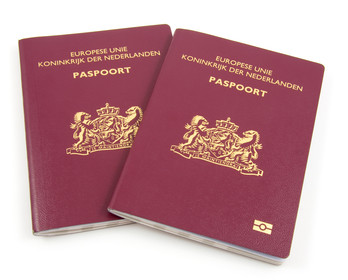Ready for action: campaigning for the rights of Dutch nationals abroad
 Most EU countries today accept dual nationality as a practical consequence of globalisation and increasingly mobile people. The Dutch government, however, continues to fiercely resist this 21st century norm, writes campaigner Eelco Keij.
Most EU countries today accept dual nationality as a practical consequence of globalisation and increasingly mobile people. The Dutch government, however, continues to fiercely resist this 21st century norm, writes campaigner Eelco Keij.
The Dutch reluctance to embrace dual nationality is partly because of electoral fear (Geert Wilders’ PVV is doing extremely well in the polls), partly because of a lack of understanding of the practical consequences for Dutch citizens abroad, and partly because of the lack of a strong lobbying organisation based in the Netherlands.
The refusal to accept dual nationality, however, is not the only disadvantage faced by the Dutch who live abroad. Voting, pension regulations, Dutch education, the digital ID to communicate with the government, access to consulates and embassies: there are many ways the Dutch government does a fine job of making its own citizens feel second-hand and ignored.
Structure
There is another side to the coin. With between 700,000 and 1.2 million Dutch citizens living abroad – think 4% to 7% of the total Dutch population – one would expect some kind of existing structure to bridge these groups, at home and abroad.
At least the government should be thinking about this. Why? Because the Dutch people abroad constitute strong economic added value to the Dutch treasury, every year. There is a clear correlation between the geographical location of (many of) the Dutch abroad on the one hand, and the international resources coming in from those countries on the other.
Moreover, Dutch citizens abroad are usually skillful people with a story to tell – they are often adventurous, intelligent and/or fell in love with somebody somewhere else, and decided to leave the homeland. Their offspring often speak different languages and have travelled extensively from a young age. In other words, they would be an interesting asset for the Dutch economy.
Added value
In Europe, several countries have recognised the added value of their citizens who live abroad and have started forming different kinds of structures to keep them on board and to make use of their connections and skills. Some countries, such as France and Portugal, even went as far as to introduce seats in parliament specifically for their citizens abroad. How different this all is compared to the Netherlands, where even a normal 21st century standard such as dual nationality is seen as a potential threat.
Indeed, neither previous Dutch governments nor the current one intend to change one bit – they make that very clear, whenever asked. The Dutch abroad need to take things into their own hands: they need to create an organisation that represents their interests, while being able to lobby MPs, cabinet members and policy makers alike.
And that is exactly what we have done with the announcement of a new single issue organisation to work on behalf of Dutch expats. We opted for Zurich to reflect the success of the Organisation of the Swiss Abroad (OSA) which was founded way back in 1916 and now represents 750 Swiss organisations in other countries.
Main tasks
The main tasks of the new interest organisation Nederlanders Buiten Nederland will be to:
1 Provide relevant information to both emigrating and emigrated Dutch citizens, connecting them to the right agencies; e.g. on nationality law, pensions, accessibility of embassies and consulates, Dutch education abroad and voting rights – possibly with its own magazine.
2 Become a powerful lobby force toward legislators/parliament on behalf of Dutch citizens abroad (appointing somebody who is physically present in The Hague).
3 Construct and maintain a database of Dutch citizens abroad, so that they can be reached promptly and efficiently whenever needed.
4 Set up and maintain an internet forum where Dutch citizens abroad can share their experiences and ask questions.
5 Operate as a bridge between Dutch citizens abroad on the one hand and government and industry on the other.
6 Encompass an organising function for (the children of) Dutch citizens abroad; e.g. summer camps and exchange projects.
7 Set up a physical office where Dutch citizens abroad can go whenever they are visiting the Netherlands.
It is only by joining forces and emphasising the benefits Dutch citizens abroad bring to the Netherlands that we can fight for treatment that is fair and equal, and accords with today’s globalised world.
Eelco Keij is a former parliamentary candidate for D66 and lived in New York for almost 10 years. He is the author of Fortunate Connections, a political manifesto on the economic added value of the Dutch abroad.
Thank you for donating to DutchNews.nl.
We could not provide the Dutch News service, and keep it free of charge, without the generous support of our readers. Your donations allow us to report on issues you tell us matter, and provide you with a summary of the most important Dutch news each day.
Make a donation